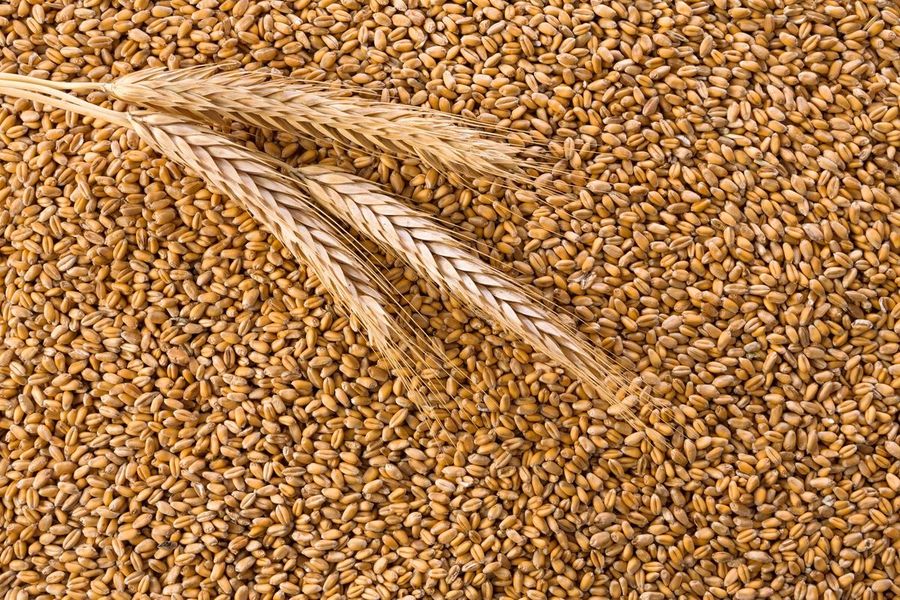Albanian wheat farmers struggle with selling price, bad weather

With the price of wheat currently less than production costs and concerns over quality due to spring and summer storms, Albanian farmers are stuck with an increased amount of wheat and few options when it comes to selling it.
In 2022, after Russia invaded Ukraine and the price of wheat soared internationally due to restrictions and obstacles on Ukrainian exports, the Ministry of Agriculture provided direct subsidies to farmers to encourage wheat cultivation, leading to a 30-40% increase in crops.
Some 4,000 farmers received subsidies of 30,000 per hectare, but with the predicted wheat crisis passing easier than expected and imports from Ukraine and Russia remaining high, this has led to a surplus in 2023.
Salliu, a wheat farmer from Lushnje, told Monitorthat he harvested 500 tonnes of wheat from 100 hectares, but the selling price is almost 50% below the cost of production and harvesting, so most of his yield will remain in the fields.
“I have all the wheat in the field unsold. There is no market to sell it as it is 26 to 27 lek per kg, and with this price, losses are high compared to the cost of crops, including fuel and fertilisers,” he explained.
In 2022, Albanian wheat sold for 50-55 lek per kg and while Salliu said buyers are reviewing prices, they have not made any purchases yet.
Meanwhile, Agricultural Minister Frida Krifca said the government will prioritise wheat harvesters this season through support for local production and farmers.
But, despite encouragement from the ministry for buyers to shop locally, concerns about quality are worsening the situation. Experts say the quality of this year’s harvest has been impacted by two unusually large storms in the summer and heavy rain that lasted well into the summer months.
On the European market, yields also increased, and weather conditions were more favourable, meaning the price has fallen to less than half of last year’s record highs, for a higher quality product. As Albania currently produces between 60,000 and 70,000 tonnes of wheat every year and imports amount to 250,000 to 300,000 tonnes annually, this is yet another blow.
Regarding export possibilities, the euro is now being exchanged for 101.2 lek, a historic low, meaning even more profit margin is lost. Until the trend reverses, companies or producers exporting products that are paid for in euros while paying their costs in lek will continue to lose considerable amounts of money.
However, the international price trend could soon change as Russia announced its departure from a crucial deal that allowed the export of Ukrainian grain across the Black Sea. This saw grain prices surge on Monday, which could present a glimmer of hope for Albanian farmers.
As of May 2023, over 30 million tonnes of grain and other foodstuffs were exported from Ukraine via the initiative, which also caused havoc on European markets. In April, Poland and Hungary announced temporary bans on imports from Ukraine as local farmers reported being unable to compete with the volume and low prices. Slovakia and Bulgaria soon joined them, while Romania also expressed concerns.
In June, the European Commission extended temporary trade measures on wheat, maize, rapeseed and sunflower seeds from Ukraine in the five countries until 15 September, with calls to extend the ban until the end of the year.
Whether the presence of Ukrainian grain in the Albanian market is causing some of the problems farmers face is not yet clear. In April, 6,000 tonnes of Ukrainian wheat arrived in Albania in addition to continued imports from Russia and Serbia. In 2022, Albania imported $8.4 million in Ukrainian cereals, while up-to-date figures for 2023 are not yet available.
Read also
Wheat in Southern Brazil Impacted by Dry Weather and Frosts
Oilseed Industry. Leaders and Strategies in the Times of a Great Change
Black Sea & Danube Region: Oilseed and Vegoil Markets Within Ongoing Transfor...
Serbia. The drought will cause extremely high losses for farmers this year
2023/24 Safrinha Corn in Brazil 91% Harvested
Write to us
Our manager will contact you soon



